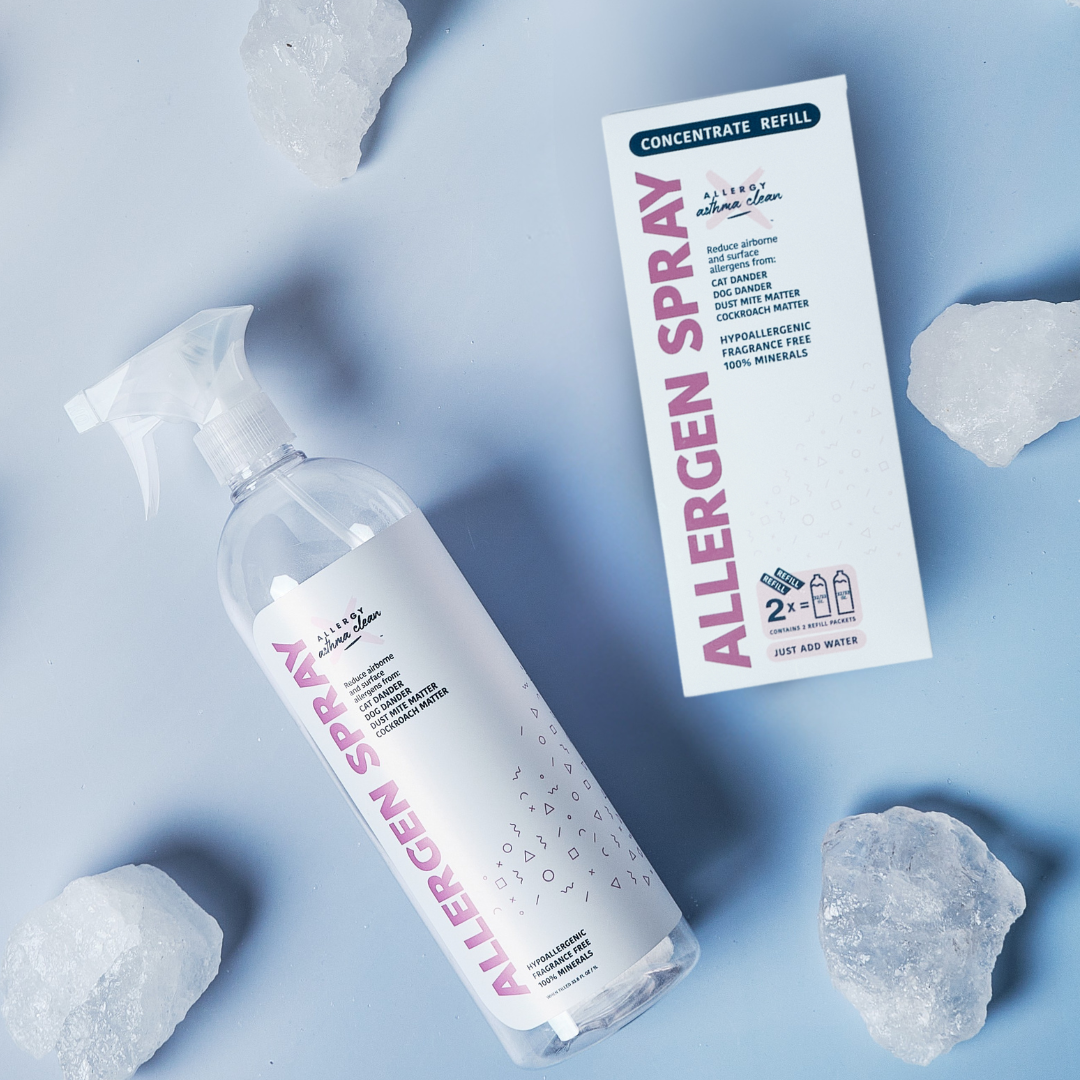Choosing the Best Indoor Air Filter for Allergies
Choosing the Best Indoor Air Filter for Allergies
Understanding Air Filters and Allergies
Before diving into the specifics of choosing an air filter, it's a good idea to understand how air filters work and their role in managing allergies. Air filters are designed to capture particles like dust, pollen, pet dander, and mold spores that can trigger allergic reactions or asthma (respiratory distress) attacks.
How Air Filters Work
Air filters function by trapping airborne particles as air circulates through a home's
The Role of Air Filters in Allergy Management
For individuals with allergies or asthma, the presence of airborne particles can worsen symptoms. By effectively filtering these particles, air filters can significantly reduce the amount of allergens in your home, providing relief from symptoms. When allergens are minimized in your environment, the frequency and severity of allergic reactions can be diminished, leading to improved health outcomes.
Understanding Allergens and Air Quality
Allergens such as pollen, pet dander, and mold spores are microscopic and can easily infiltrate indoor environments. Understanding the types of allergens that affect you is crucial in selecting the right air filter. Different filters are designed to target specific particles, so knowing your allergy triggers can guide your choice. Additionally, poor indoor air quality can aggravate allergies, making the selection of an effective filter all the more important.
Types of Air Filters
There are several types of air filters available on the market, but not all are created equal. Here, we'll explore the most common types and their effectiveness in dealing with allergies. Understanding the variety of filters can help you make a choice that best suits your needs.
HEPA Filters
High-Efficiency Particulate Air (HEPA) filters are widely regarded as the gold standard for air filtration. They capture 99.97% of particles as small as 0.3 microns, making them highly effective in removing allergens from the air. If you suffer from allergies or asthma, a HEPA filter is often the best choice. The effectiveness of HEPA filters in capturing fine particles like pollen and dust mites makes them a popular choice for allergy sufferers.
MERV Rated Filters
Minimum Efficiency Reporting Value (MERV) ratings indicate the effectiveness of air filters. The ratings range from 1 to 20, with higher numbers representing better filtration. For allergy sufferers, a filter with a MERV rating between 11 and 13 is generally recommended, as these can capture most common allergens. Understanding the MERV rating system can help you identify the filter that best meets your filtration needs.
Activated Carbon Filters
While not specifically designed for allergens, activated carbon filters can help remove odors and gaseous pollutants from the air. They work well in combination with other filters, like HEPA, to improve overall air quality. By adsorbing volatile organic compounds (VOCs) and other gases, they can enhance the air quality in your home, particularly if odors or fumes are a concern.
Electrostatic Filters
Electrostatic filters use an electric charge to attract and capture particles from the air. They are washable and reusable, which can be cost-effective over time. These filters are effective at capturing larger particles and can be an excellent option for those looking to reduce waste and maintenance costs.
UV Light Filters
UV light filters use ultraviolet light to kill bacteria, viruses, and mold spores as they pass through the HVAC system. While not effective against all allergens, they can be beneficial for reducing microbial contaminants. Combining UV filters with other types of filtration can provide comprehensive air quality improvement.
Choosing the Right Air Filter for Your Home
When selecting an air filter, consider the following factors to ensure you choose the best option for your needs. Each home and individual has unique requirements, making it important to evaluate all aspects of a filter's performance and compatibility.
Filter Size and Compatibility
It's important to choose a filter that fits your home's HVAC system. Check the dimensions of your existing filter and match them with the new one. A properly fitting filter ensures optimal performance and efficiency. Incompatible filters can lead to air bypass, reducing the effectiveness of the filtration and potentially damaging your system.
MERV Rating
As mentioned earlier, the MERV rating is crucial for determining the filter's effectiveness in capturing allergens. Aim for a filter with a MERV rating between 11 and 13 to ensure it effectively captures common allergens. It's important to balance the need for high filtration with the airflow capacity of your system, as higher MERV ratings can restrict airflow if your system isn't designed to handle them.
HEPA Certification
If you decide to go with a HEPA filter, ensure it is certified and meets the necessary standards. Not all filters labeled as "HEPA" are true HEPA filters, so it's essential to verify their certification. Look for filters that comply with standards set by organizations such as the U.S. Department of Energy to ensure you're getting the real deal.
Maintenance and Replacement
Consider the maintenance requirements and replacement frequency of the filter. Some filters require regular cleaning or replacement every few months to maintain their effectiveness. Be sure to follow the manufacturer's recommendations for optimal performance. Neglecting maintenance can reduce the filter's efficiency and potentially harm your HVAC system.
Budget
While high-quality air filters can be more expensive, they are often worth the investment for allergy sufferers. Consider your budget and weigh the benefits of improved air quality against the cost of the filter. Long-term health benefits and reduced allergy symptoms can justify the initial investment in a premium filter.
Environmental Impact
Consider the environmental impact of your filter choice. Reusable filters or those made from sustainable materials can reduce waste and contribute to a more eco-friendly home. Balancing performance with environmental considerations can lead to a more sustainable lifestyle.
Benefits of Using an Air Filtration System
An air filtration system can provide a range of benefits for allergy and asthma sufferers, including significant improvements in overall well-being and comfort. Understanding these benefits can reinforce the importance of a good filtration system in your home.
Improved Air Quality
By capturing allergens and pollutants, air filters can significantly improve indoor air quality, leading to fewer allergy and asthma symptoms. Cleaner air means fewer irritants that can trigger respiratory issues, ultimately contributing to better health and comfort.
Reduced Allergy Symptoms
Effective air filtration can help reduce common allergy symptoms like sneezing, coughing, and itchy eyes, providing much-needed relief. With fewer allergens in the air, your body is less likely to react, leading to a decrease in the frequency and intensity of allergy attacks.
Better Sleep
Cleaner air can lead to better sleep quality, as allergens are less likely to disrupt your rest. This can contribute to overall improved health and well-being. A good night's sleep is essential for daily functioning, and reducing nighttime allergy symptoms can make a significant difference in your sleep quality.
Enhanced Overall Health
Beyond allergy relief, improved air quality can lead to better respiratory health and a stronger immune system. By minimizing exposure to harmful particles, your body can focus on maintaining health rather than fighting off allergens and pollutants.
Peace of Mind
Knowing that your home is equipped with an efficient air filtration system can offer peace of mind, allowing you to focus on other aspects of life without constantly worrying about allergy triggers. This sense of security can enhance your quality of life and reduce stress related to health concerns.
How Often Should You Change Your Air Filter?
Regular maintenance is crucial for maintaining the effectiveness of your air filter. Most filters should be replaced every 3 to 6 months, but this can vary depending on factors like usage and air quality. Consistent filter changes ensure your system operates efficiently and effectively.
Understanding Manufacturer Guidelines
Check the manufacturer's guidelines for specific recommendations, and make it a habit to regularly inspect your filter to ensure it's in good condition. Adhering to these guidelines will help maintain the filter's performance and extend the life of your HVAC system.
Signs It's Time to Change Your Filter
Be aware of signs that indicate it's time to change your filter, such as increased allergy symptoms, visible dirt on the filter, or reduced airflow in your home. These signs suggest that the filter is no longer effective and needs replacing.
Impact of Neglecting Filter Changes
Neglecting to change your air filter can lead to decreased air quality and strain on your HVAC system, potentially resulting in higher energy bills and costly repairs. Regular filter changes are a simple yet effective way to ensure your system runs smoothly and efficiently.
Choosing the best indoor air filter for allergies involves understanding the different types of filters, their effectiveness, and how they fit into your home's HVAC system. By considering factors like MERV ratings, HEPA certification, and maintenance requirements, you can select a filter that meets your needs and provides relief from allergy and asthma symptoms.
Remember, investing in a high-quality air filter is an investment in your health and well-being. With the right air filtration system, you can enjoy cleaner air, reduced symptoms, and a better quality of life. Let's breathe easier together, one clean breath at a time.
Final Thoughts
Incorporating an effective air filter into your home environment is a proactive step towards better health. Prioritizing air quality can lead to significant improvements in daily comfort and long-term wellness. As you explore your options, consider your specific needs and lifestyle to find the perfect fit.
Encouragement to Take Action
Don't wait for symptoms to worsen before making a change. Take charge of your indoor air quality today to prevent future discomfort and health issues. The benefits of cleaner air are immediate and long-lasting, making it a worthwhile endeavor.



